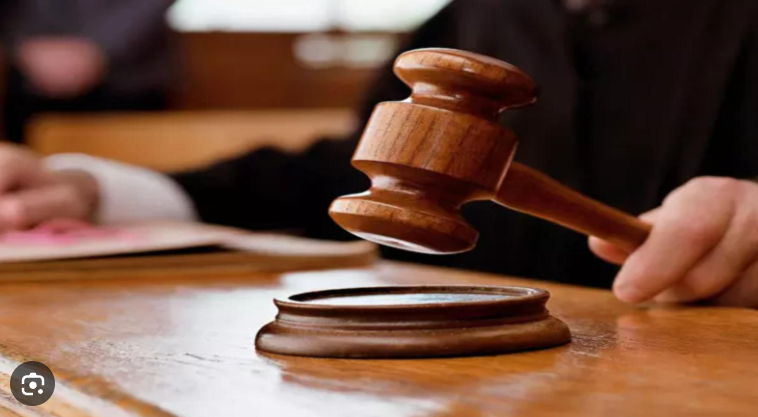Law
Throttle and Gavel: Defending Yourself Against Speeding Charges

Speeding charges are a common issue that drivers around the world face. Being issued a speeding ticket may seem like a minor inconvenience, but it can have significant impacts, ranging from hefty fines to increased insurance rates, and even license suspension. In essence, a speeding charge involves a violation of traffic laws, where a driver is accused of driving over the posted speed limit for a certain road or area.
Although it’s common, many drivers do not fully understand how to effectively defend themselves against a speeding charge in court. Learning the key elements of a speeding violation case – from understanding the evidence used, the role of the traffic officer, to legal defenses – can be decisive factors in fighting a charge. Being equipped with this knowledge allows individuals involved to make informed decisions, potentially saving them from unwanted penalties and unnecessary complications. Above all, it serves as a reminder to always prioritize safety on the road.
An Overview of Speeding Charges
Speeding charges are civil or criminal charges brought against drivers that exceed the statutory speed limit in a specific area. Legislation regarding speed limits varies across regions and municipalities, often decided by local traffic authorities or law enforcement agencies. Typically, these laws provide a maximum speed limit for different types of roads, whether in urban or rural settings, and may change according to weather or traffic conditions. The enforcement of these speed limits is aimed at ensuring safety on the roads, reducing traffic accidents, and maintaining orderly flow of traffic.
Consequences of Speeding Charges
The consequences of a speeding charge can vary greatly, depending on the severity and frequency of the offense. Usually, a speeding violation results in a fine, with the amount determined by how much the speed limit was surpassed. Repeat offenses can lead to higher fines, license points, or even suspension or revocation of the driver’s license. In some severe cases, when high speed is linked to endangering others or causing an accident, the offender might even face imprisonment. This is the point where a speeding ticket attorney is imperative for understanding the specific laws, charges and potential defenses in a speeding violation case.
Evidence in Speeding Charges
The most common form of evidence is the testimony of the traffic officer who issued the ticket. Officer’s statements about the driving conditions, vehicle behavior and details of the alleged speeding violation often carry a significant weight in court. Apart from the officer’s testimony, tangible evidence such as photographs and videos, usually from traffic cameras, can also be used in court to prove a speeding violation.
How Traffic Officers Gauge Speed
Traffic officers have several techniques at their disposal to gauge a vehicle’s speed. They often use devices like radar guns, which emit a radio wave that bounces back off the moving vehicle, giving an accurate measure of its speed. In addition, there are speed cameras installed in certain areas which automatically capture images of vehicles exceeding the local speed limit. LIDAR (Light Detection and Ranging) devices are also frequently used by officers, providing an even more accurate reading by using laser technology. It’s essential to understand these devices since their proper usage and accuracy can sometimes be challenged in speeding case defenses.
Legal Counsel in Speeding Cases
When facing a speeding charge, one may wonder whether hiring a lawyer is necessary. Though it doesn’t seem like a serious crime, the long-term effects can be quite significant, particularly when it comes to insurance premiums and potentially losing your license. A lawyer’s role is to provide guidance, interpret complex legal language, and potentially find loopholes in the prosecution’s case which non-lawyers may not see. Their negotiation skills can sometimes result in reduced fines, lesser charges, or even getting cases dismissed.
How a Lawyer Can Help Build a Defense
A competent lawyer can help build a concrete defense strategy based on the circumstances of the alleged speeding violation. They are experienced in challenging the accuracy of speed detection tools, arguing against non-compliant signage, asserting necessity due to emergencies, and casting doubt on the traffic officer’s observations. In addition to knowing the best defenses, they are also well-versed in court procedures and have the expertise necessary to ensure your rights are properly defended. Hiring a lawyer to handle speeding charges can provide peace of mind knowing that you are equipped to present the strongest possible defense.
Tips and Strategies to Avoid Speeding Charges
The best strategy to avoid speeding charges is by adhering to the speed limits. Speed limits are set for the safety of all road users and working within these boundaries can help prevent violations. Beyond this, maintaining a calm and respectful demeanor when stopped by the traffic police is necessary. Understandably, being pulled over can be a stressful situation, but politeness and cooperation can significantly affect how the situation progresses. Additionally, complying promptly with the officer’s requests – such as providing your driver’s license and registration when asked – can help avoid additional charges.
Importance of Maintaining Good Driving Records
Regular speeding can lead to accumulated points on your driver’s license, which not only increases the risk of license suspension but can also impact your insurance rates. Exceptionally good driving records may even be beneficial in a legal situation. There are instances where a judge or prosecutor might consider a clean driving history, effectively aiding in reducing the charges or penalties associated with a speeding violation. Ultimately, driving responsibly is the best way to avoid speeding charges and ensure everyone’s safety on the road.
Understanding speeding charges and how to effectively combat them in court is essential not just for drivers who regularly face such violations, but for anyone who drives. It helps you stand up for your rights and guide you through the legal system more confidently, potentially saving you from unwarranted penalties. Always remember, a knowledgeable driver is not only a safe driver but also an empowered one.





















































